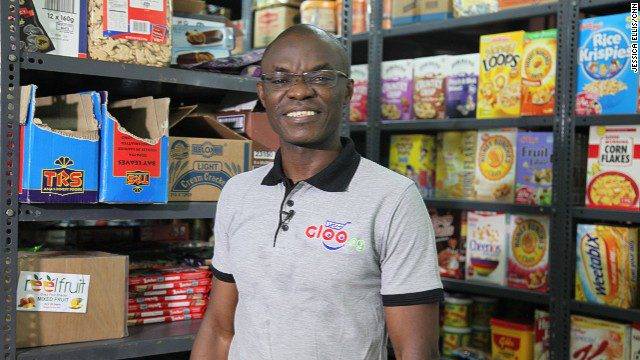Nigerian E-Commerce Startup Gloo Shuts Down After 7 Years

In a tweet that took customers and followers by surprise, the ‘Chief Glootian’ announced that his online grocery store is shutting down e-commerce operations. Nigeria-based Gloo has served customers with on-demand products for no less than 7 years, and according to the founder – Olusanya Olumide – the company is shutting down to give way to their stealthily schemed business project. Gloo has joined the comity of e-commerce sites that have closed down, including OLX, Dealdey, and Efritin who have all exited the market in the last few years.
Fellows, listen up! We’ve BIG news coming out of @Gloo_ng next month! We’ll be shutting down our ecommerce business & will be launching a new business we’ve built past 18months in stealth!???
Ahead of that time, we’ll be selling off our inventory @ 50% discount! Stay tuned! https://t.co/NRtGCgdJqU
— D.O (@docolumide) January 14, 2019
Trouble For Nigerian E-Commerce?
Dealdey was founded in 2011 by Sim Shagaya. After raising USD 5 Mn and 7 years of featuring daily deals on buyables in Nigeria, it shut down operations just last month. The development came shortly after it was acquired by Ringer Africa Deal Group (RADG) for USD 5 Mn. The owners reported offered to sell the e-commerce platform for USD 75 Mn.
Lagos Online Exchange (OLX), which was a leading classified ads company owned by S.A’s Naspers, closed its Nigerian and Kenyan operations due to experienced difficulty in scaling operations in these environments. OLX relieved its Nigerian staff of their duties and focused on its home market in South Africa. It was reported by several sources that the Craigslist alternative had been literally struggling to make its Nigerian and Kenyan operations viable since it ventured those markets in 2012.
The Efritin chapter of the e-commerce close-down saga rocked the media and ecosystem in 2015. Its then CEO, Nils Hammer had to give up on the online platform as a result of high cost of data, poor internet penetration, and adoption, including the economic woes in Nigeria. These factors were rather too prevalent to survive the company, hence, total shutdown.
In 2017, the Nigerian e-commerce industry was projected to be worth USD 50 Bn in a decade. This prediction has a variety of odds stacked right up against it. As Gloo shuts down to spin-off into another sector, questions were raised from different crevices of the twitter thread. The medical doctor turned tech entrepreneur did not cite any other reasons for the exit, but insiders and familiar sources are blaming the same factors responsible for the previous e-commerce closures.
What’s More?
In an earlier tweet with which he spoke about change, Olusanya Olumide is reported to have dismissed the African e-commerce sector using harsh verbatim.
When I tweeted the embedded tweet, you can see it was this change of direction decision we had just made at that time that I had on my mind. So before going off tweeting/writing shit, check the date. This ain’t happening by accident. It’s been >18months in the making.?? pic.twitter.com/9PSuh8e1iJ
— D.O (@docolumide) January 14, 2019
While the founder once said he goaled for Gloo to become Nigeria’s largest supermarket, it seems the market factors at play aren’t quite allowing the company reach contending terms with Shoprite, Spar and Park n Shop.
Lack of adequate market research, distrust for e-commerce websites, customer acquisition costs, purchasing complications and logistic loopholes could be the team of reasons fostering e-commerce shutdown in Nigeria.
Even the surviving online marketplaces such as Konga Jumia are reported to be facing hurdles. Early 2018, Naspers sold its Konga stakes to Zinox Computers, making the firm Konga’s largest shareholder. Konga later merged with Yudala, another e-commerce company owned by Nnamdi Eke.
As of 2017, Nigeria’s e-commerce industry was valued at USD 13 Bn. The National Bureau of Statistics projected that in 2018 it could hit NGN 10 Tn. While these predictions were promising, Gloo’s shutdown, which accompanies series of similar exits, could mean Nigeria’s e-commerce sectors needs to be looked into and scaled-up.
Featured Image: CNN International